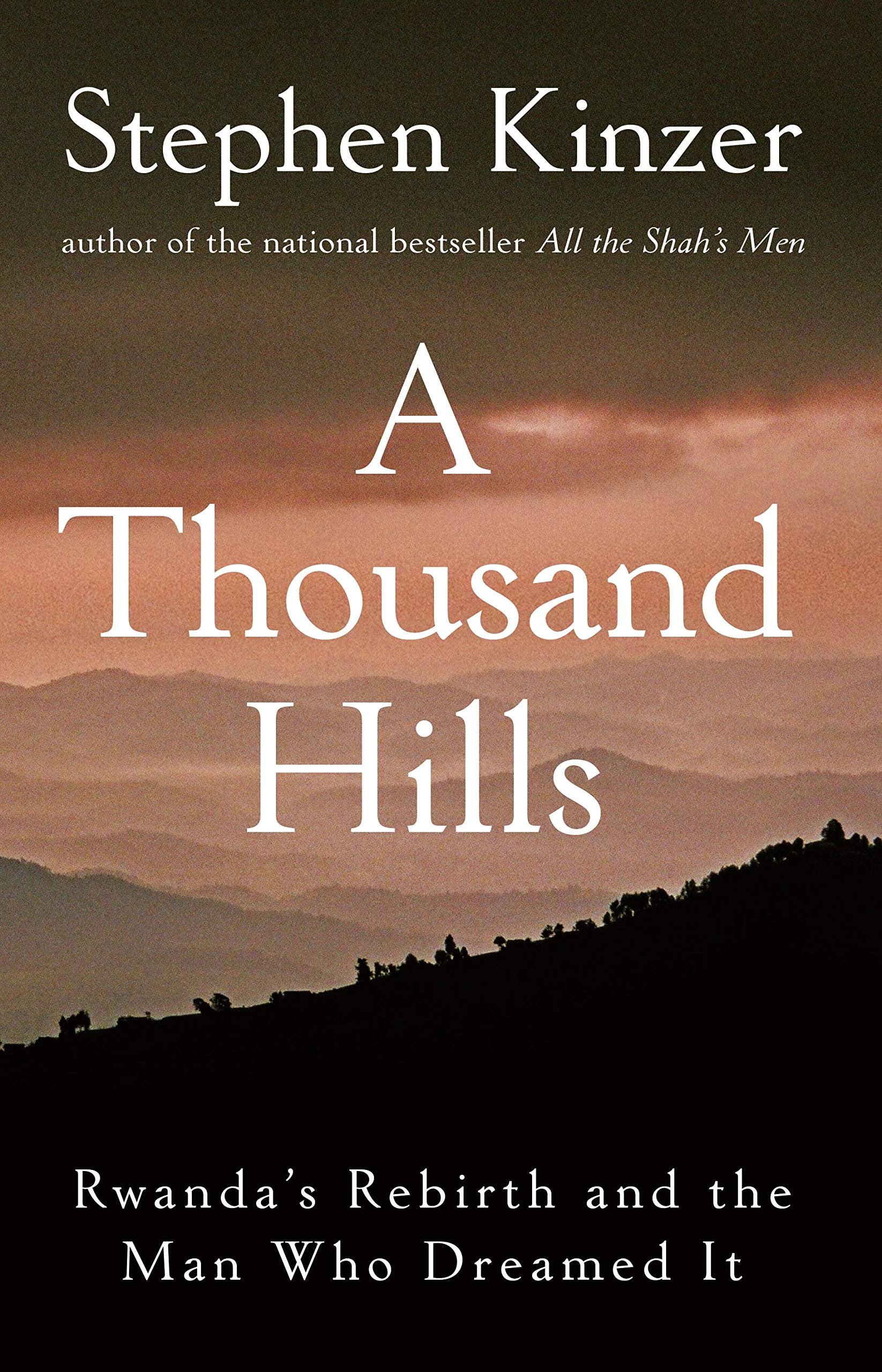A Thousand Hills: Rwanda’s Rebirth and the Man Who Dreamed It
“I do not want to be cynical, but if developing nations are kept backward by being told, again and again, you belong to the poor and you are there, where you actually belong, then nothing will change” - President Paul Kagame
A highly readable and engaging account of Rwanda's political turmoil and improbable success in the past 50 years, with extensive quotes from Paul Kagame serving to frame the historical account. A Thousand Hills is a biographical look at Rwanda's recent history from the perspective of Paul Kagame, the authoritarian leader of Rwanda. Kagame's family fled Rwanda in the late '60's after an outbreak of violence directed at the Tutsi community in Rwanda, which led to the overthrow of the Tutsi monarchy and the installation of a Hutu political system. Kagame grew up in Uganda, attending school there and eventually fighting with Musevini's forces as they overthrew the Uganda's Idi Amin. Kagame recieved training in military intelligence, and became a veteran guerilla fighter. Kagame used his position in the Ugandan military to infiltrate Rwandan Tutsi soldiers into the army, allowing him to launch his 1990's invasion of Rwanda with the backing of his cadre's within Uganda.
Kagame launched the invasion in order to remove the Hutu dominated political party in Rwanda, and did so as the rumblings of genocide were beginning to take hold in Rwanda itself. The dictator of Rwanda, President Habyarimana, began to support the radical Hutu factions within his party, and allow the creation of Hutu militias that were armed and directed by the armed forces of Rwanda. Kagame's RPF forces initially struggled to gain ground, but soon became an effective fighting force as they gained military experience and continued support from Uganda. As the genocide began, and the UN and international community dragged their feet, Kagame's RPF breached its recent ceasefire agreement with the Rwandan forces and pushed toward Kigali. The RPF succeeded, but Hutu Interhambwe militias and extremist elements of the government had succeeded in killing over a million Tutsi in an attempted genocide. As RPF forces marched into Kigali, 10% of Rwandas population had been killed, and 30% had fled for fear of Tutsi reprisals.
Kagame thus inherited a desolate country, with corpses littering the streets of Kigali and entire communities empty; either they had been killed or fled. Former Hutu forces remained on the Rwandan border, with international military support from France. These forces took control of the refugee camps filled with Hutu refugees, and used them as springboards to launch guerilla attacks and massacres within Rwanda. Kagame used this threat as a pretext to invade Zaire (the DRC) and overthrow Mobuto Sese Seko, the long reigning dictator of Zaire and ally of the Interhambwe militias. Kigali was successful in its mission, and established a new dictator, Kabila, in his stead. Kabila quickly fell out with his Rwandan allies, and began to court the former Hutu administration within eastern DRC. Kagame would have none of this, and launched a second invasion. Kabila Sr. was eventually assassinated, and his son Joseph Kabila, took power.
Kinzer's account of Kagame and Rwanda is interesting. He is largely glowing in his analysis of Kagame, but does not fear to report on his authoritarian excesses and the many violent and repressive techniques used by the RPF to retain power. Kinzer's account of the genocide is harrowing, as it would be, and he spares little detail. Kinzer is also dismissive of the International community, and the way they allowed a genocide to occur again, only a few decades after the horrors of WWII. Kagame's story is interesting, and for those who are fascinated by guided democracy and state-led growth, A Thousand Hills offers the story of one of the modern worlds main proponents of these systems. A Thousand Hills is not a perfect story, as much of the nitty-gritty's on how these development is taking place, and the political and economic indicators behind it, are left out. Even so, Kinzer's account of the Genocide and the subsequent wars and development in and around Rwanda, and the central figure throughout all of this, Paul Kagame, is fascinating stuff. Recommended for those interested in Rwandan history, studying the genocide, and state led development/authoritarianism. This was a great account on Rwandan history, and as Kigali's star continues to rise, a timely account on one of the most promising developmental states in Southern Africa.
